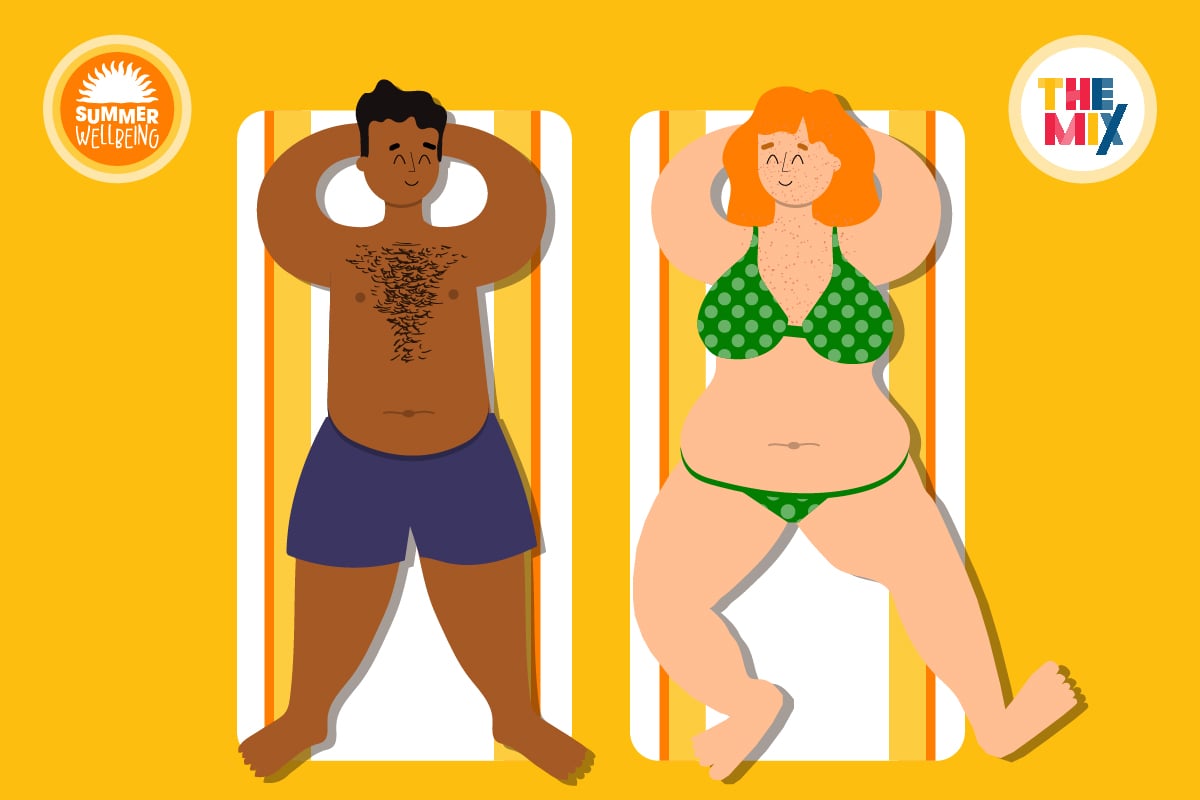How to cope with body image issues


Hi my name is Viktoria. I’m 16 and I volunteer at The Mix. I’m interested in psychology and journalism.
What causes body image issues?
Issues surrounding body image are familiar to us all. From seemingly small things, such as comparing ourselves to others, or finding it difficult to look in the mirror, to disordered eating, we can all relate to sometimes viewing our bodies in a negative way.
I’d like to discuss different factors that can affect body image, so that anyone reading this will know that they’re not alone. I’ll also be sharing some tips to try and help build up confidence and self-esteem.
Different kinds of body image issues
All genders experience body image issues and I find it equally as important to discuss them with reference to trans and non-binary people as well as cis gender men and women.
The media portrays certain kinds of body images as the ideal, yet they are near enough impossible to attain. However, regardless of the fact that we know these standards are unattainable, there is still an enormous pressure to meet them, as they’ve become our idea of beauty.
Linking my personal experiences to those of my friends, these were the most common issues voiced:
- A very specific body type being the standard and any deviations from it being seen as unattractive or at least not the “ideal”. This ranges from being too broad, too narrow, too skinny, plus size, too tall, too short and not having weight distributed in the “right” places, as seen in the hourglass figure.
- Being judged for being too muscular or not muscular enough. It seems to be common that women are shamed for building up muscles too much, which is not seen as feminine, and men are shamed for not being highly muscular, as this is seen as unmasculine.
- Bloating, untoned skin, cellulite, stretch marks and scars are a normal part of bodies, which people feel uncomfortable for having.
- Body hair and people’s comments about where and on who it’s acceptable.
- Body dysmorphia.
- Surgery scars and difficulties with people’s gender identity not aligning with their bodies.
Whichever of these you relate to, this shows that we all deal with these worries.
Self-love & confidence
Comparing ourselves to others is honestly a daily habit for so many, and this all stems from a lack of self-esteem and confidence. Due to it being the summer period, the pressures of having the “bikini body” or simply reaching the perfect standard are high.
This may stop many of you from doing the things you want to do, such as being at the beach, or it may stop you from wearing certain items of clothing. Society’s expectations make it hard to love yourself, yet you can’t really have confidence without self-love.
How you can practice self-love
These insecurities can take you to a dark place very quickly, so here are some tips that have helped me to feel better and deal with these thoughts:
- Spend time looking at your body in the mirror. As mentioned earlier, body dysmorphia is a large element in many of our lives and therefore, by becoming more familiar with our bodies, in turn we become more comfortable with accepting them.
- Self-reflection and understanding that no one truly fits ideal beauty standards without alteration, whether this be through surgery or airbrushing and editing online content.
- Actively finding positives about your body; journal these each day and it will build up your self-esteem. No one will be 100% confident with every part of themselves, but the aim is to celebrate as much as you can about your body.
- Focus on the parts you dislike and determine the reason for your dislike. Is it purely due to societal standards and something that you can’t change or is something attainable such as becoming fitter and healthier overall?
- Experiment with clothes. A part of the reason for your insecurities may be clothes that aren’t quite right for you. It might help to do some research on which clothes might suit your shape and make you feel good (although there’s absolutely no pressure to do this, it’s all about what makes you comfortable).
- Follow empowering people on social media such as Candice Huffine, Zach Miko and Em Ford.
How you can be helpful to others
- Be mindful of how you discuss the topic of body image, as you never know what someone is struggling with.
- Avoid making comments on other people’s bodies. It may be taken the wrong way, even if this wasn’t your intention.
- Make it a goal of yours to give out more compliments. Personally, I work a retail job so I’ve made it a goal of mine to compliment as many customers as I can. Of course, ensure that these compliments are genuine.
- Check in on those around you if you notice any signs that they are struggling with their body image. Let them know you’re there to listen and support them.
It is important to remind yourself that everyone experiences body image issues. Focus on your personal issues and try to help yourself but also reach out for support, even if this is just a conversation with a friend.
Beat help people overcome eating disorders through helplines, online support and self-help groups. Call 0808 801 0677 or, if you’re under 18, call their Youthline on 0808 801 0711.
The Self-Esteem Team (SET) run workshops in schools across the UK to help tackle young people’s issues with body image, self-worth and mental health.
Next Steps
- Chat about this subject on our Discussion Boards.
By
Updated on 04-Aug-2022
Sorry, comments closed
No featured article









